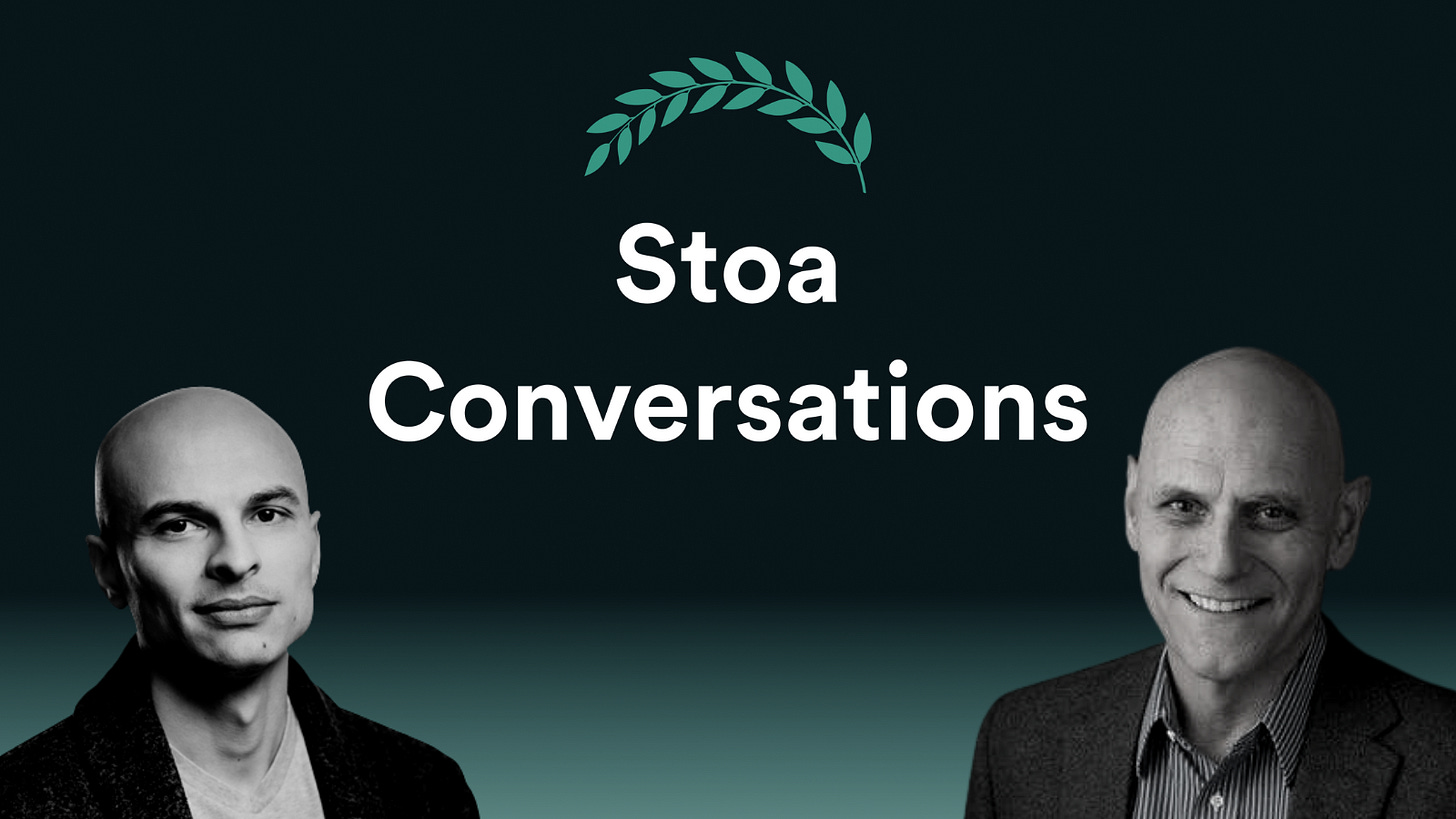Acceptance and Freedom
How loving fate makes us free
Welcome to The Stoa Letter, the newsletter on Stoic theory and practice.
Every week we share two emails to help you build resilience and virtue with ancient philosophy. Each email includes one meditation on Stoic theory, one action to do in order to become more Stoic, and links to the best resources we’ve found.
🏛️ Theory
Accepting fate opens the door to freedom.
Agrippinus, a Stoic philosopher and statesman, lived during the days of Nero. Nero's rise to power as emperor was paralleled by an increase in his paranoia.
Eventually, Nero accused the Stoic Opposition – a group of Stoic adversaries who viewed Nero as a frivolous tyrant – of plotting his demise. So, Agrippinus, and others, were put to trial.
This event must have reminded Agrippinus of his father, who was executed for treason by Emperor Tiberius.
When a messenger told the Stoic Agrippinus that his case was debated in the Senate, he was not interested in hearing it. It was his custom to exercise at that hour. When another messenger returned and told him that he was condemned by the senate, Agrippinus asked:
‘To exile,’ says he, ‘or death?’
‘Exile.’
‘What about my property?’
‘It’s not been seized.’
‘So let’s go to Aricia and have breakfast there.’
Can’t have breakfast here? Alright, he’ll have it elsewhere. Agrippinus stood against the tyrant Nero and, yet he also gracefully moved with events.
Agrippinus cannot control whether or not he is put to death or sent into exile. So he greeted either opportunity with open arms. He embraced both outcomes with equanimity.
The fact that he accepts his fate is what empowered him to resist Nero in the first place.
We make choices in a garden of forking paths. Acceptance clears obstacles to those paths. We’re no longer constrained by a need to avoid suffering.
The fear of rejection, failure, and suffering do not hold us back. By abandoning ourselves to fate, we live freely.
🎯 Action
Bring to mind one thing you can accept – and note how that opens up a path to freedom.
🔗 Links
💡 Experiential avoidance – the fancy term for avoiding things because they cause us pain – is one of the key frustrations of people’s lives. Our fear constrains us. We build up habits of avoiding pain. This helps in the short term, but not in the long term, does not. A life without pain is not a good one.
🎧️ “Acceptance is the ability to feel the full range of your thoughts and emotions without needless avoidance or clinging in the service of what matters the most to you”
Listen to a Stoa Conversation with the founder of acceptance commitment therapy, Steven C Hayes:

Steven C Hayes on Wisdom, Love, and Acceptance (Episode 88)
Get out of your head and into your life

📔 Seneca chose to work with Nero instead of against him. By doing so, he was able to improve the Roman empire when Nero was younger – but as Nero aged he was unable to extract himself from tyrant’s vices. Did Seneca make the right choice? Shouldn’t he have joined the Stoic Opposition? Philosophers have wrestled with this question for centuries.
What did you think about today's letter?
🏆️ Share The Stoa Letter
If you find what we’re doing useful, please share it. Just have people sign up with your link below.
Share The Stoa Letter
{{rp_personalized_text}}
Or copy and paste this link to others: {{rp_refer_url_no_params}}
Get hundreds of Stoic meditations and lessons with the Stoa app (free download)

